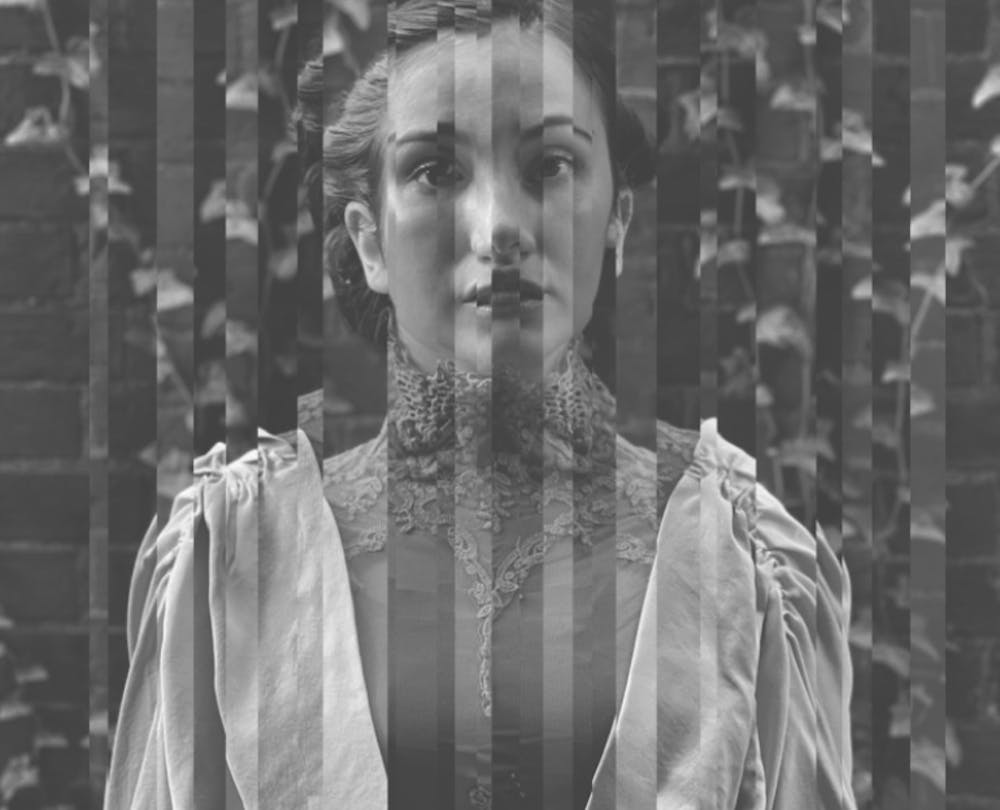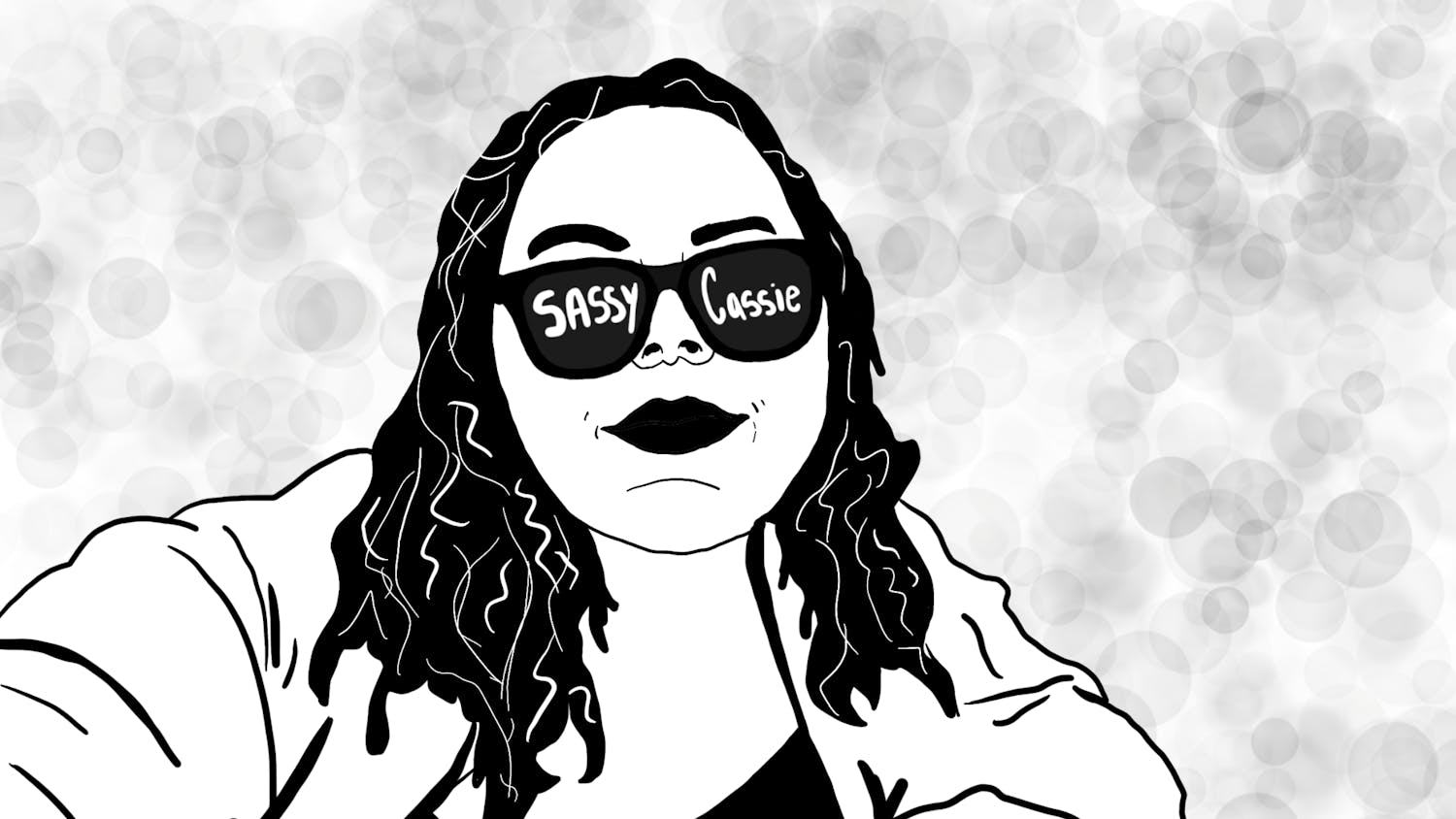Clarification appended.
Until Nov. 6, Ohio University’s School of Theater is showcasing Summer and Smoke, a play by Tennessee Williams that follows the relationship between a minister’s daughter and a young doctor who lived next to her throughout childhood.
The play is held at the Elizabeth Evans Baker Theater in Kantner Hall, 7 S. College St., with tickets costing $5 for students, $7 for ages 65 and older and $10 for general admission. Free OU student tickets subsidized by Arts for Ohio are available at the venue the day of the show.
The production will be the first show at OU offering a sensory-friendly version for individuals with sensory processing-related disorders.
Sarah Yorke, a MFA student studying art administration and theater production and management, is directing the play. Yorke said directing Summer and Smoke for her thesis was always her first choice as she has admired Williams’ work for a long time, particularly the artistry present in this specific show.
“I think it is among his most poetic and lyrical plays and is one of the most devastating and beautiful pieces of art he has written,” Yorke said. “I think that in Summer and Smoke, there are a lot of things that were ringing true as universal themes today. Those being love and loss and grief, and also the expectations that are put on women in society, and how women are supposed to act or present themselves.”
With the focus on women’s presence within the play, Yorke utilized her perspective as a woman herself to draw out the characters and the themes. Yorke said she was able to adapt the show’s themes to have a more modern and intricate meaning for the current audience.
“This was written in 1948 and felt really powerful 73 years later to do this as a woman director and give it new life for a new audience and keep his work relevant and maintain the themes,” Yorke said. “But also (to) get a more truthful resonance from a more diverse and more politically aware and cognizant audience of how far we've come and how far we have to go in society.”
For one day of the production, on Nov. 6 at 2 p.m., Summer and Smoke will be performed in a sensory-friendly manner to accommodate individuals who may experience sensory difficulties at the regular performances of the show. Yorke emphasized that this transition will enable audience members to feel more included in the show, as productions often do not cater to individuals with disabilities.
“The goal of sensory-friendly is to adapt the performance to foster a more welcoming and comfortable arts experience for people with sensory processing disorders, developmental differences, autism, or others who feel limited by the traditional theater setup,” Yorke said. “So there will be sound cues that are more compressed and less loud, there will be lighting cues that will change. If they are flashing or really bright, the audience house lights will be half up. There will be wheelchair accessibility, we will have ASL interpreters. The goal is just to create a much more accessible theater environment for people who otherwise don't feel welcomed or accommodated by the theater.”
George Carpenter, a MFA student studying acting, is playing John Buchanan Jr. in the show. Carpenter said this decision to do a sensory-friendly performance is significant in connecting more with the audience.
“I think it's a great idea,” Carpenter said. “They've actually been able to work their scenes in a way where it's not as loud or overbearing in certain parts that might have been there during the usual performances. I think it's a great idea to allow other people that maybe have more reservations about theater to come to see it.”
Chris Rees, a MFA student studying scenic design, said this new approach to more inclusive performances should become more normalized and immersed into future productions.
“I think that it should be and I think the groundwork is there,” Rees said. “We had already started (having) ASL interpreters come in for shows and I think that this would just broaden that further. And I think that it will continue based off of where we started and now we're really branching out more with it.”
Whether through its usual performance or the sensory-friendly version, Carpenter said the show is about romantic relationships, but also about familial dynamics, which is something that most audience members can relate to.
“I think the show is about how people try to find love,” Carpenter said. “I think it explored a lot of how men were definitely expected to live a certain way, like, John definitely had to be a doctor. He had no say in that, really, growing up his whole life ever since he was a kid, it was prescribed that this is what he has to do. And I think that pushing your own agenda on your children in situations where that may not have been what they actually wanted to do or who they wanted to be, eventually, some part of them is going to rebel and it's going to bubble up, and it's not going to be good. And I think that John's a good example of how disastrous that can be.”
Through Rees’ involvement in the scenic design for the show, he said it was interesting to combine the historical components of the show to the thematic content within it to create pieces that would reflect them.
“The main character, she keeps recycling through this memory of her and John being together, or the lack thereof, essentially,” Rees said. “And so we take that concept and then go into research. We didn't want to do a complete period piece; we wanted to stretch it. And so I went more into more artistic inspiration that was based off of memories and faded colors within a memory in general.”
Adan Sanchez, a friend of Yorke’s outside of OU who is the dramaturg for the show, said the hope for the audience of each of the performances is to recognize the beauty within the writing of the show, while also enjoying the performances themselves.
“I really do hope that they find a lot of poetry in the play, because there's so much that is in there that you can walk away being amazed by the words,” Sanchez said. “I really do hope that they seek out the poetry within the play itself because Tennessee Williams was a poet and a playwright and he was able to combine the two. So I really do hope that they can see that in the text that it is a great poetic piece of work, even though it's theatre.”
Within each performance, Yorke hopes the themes translate to the audience as deeper life lessons on relationships, regrets and personal growth.
“What I would hope that audiences take away from it is that they're even in a society where people are telling you to be one thing, that you have the ability to break out and be something greater,” Yorke said. “And no matter what, we're always going to receive that pushback. And we're always going to experience these things that might cause grief or loss or pain in our lives because of the expectations society places on us. But to not let those things take up real estate in our body and allow us to move forward gracefully with who we are and not cling to the past.”
Clarification: A previous version of this article failed to state that free OU student tickets subsidized by Arts for Ohio are available at the venue the day of the show alongside tickets that can be bought in advance. This article has been updated to reflect the most accurate information.






